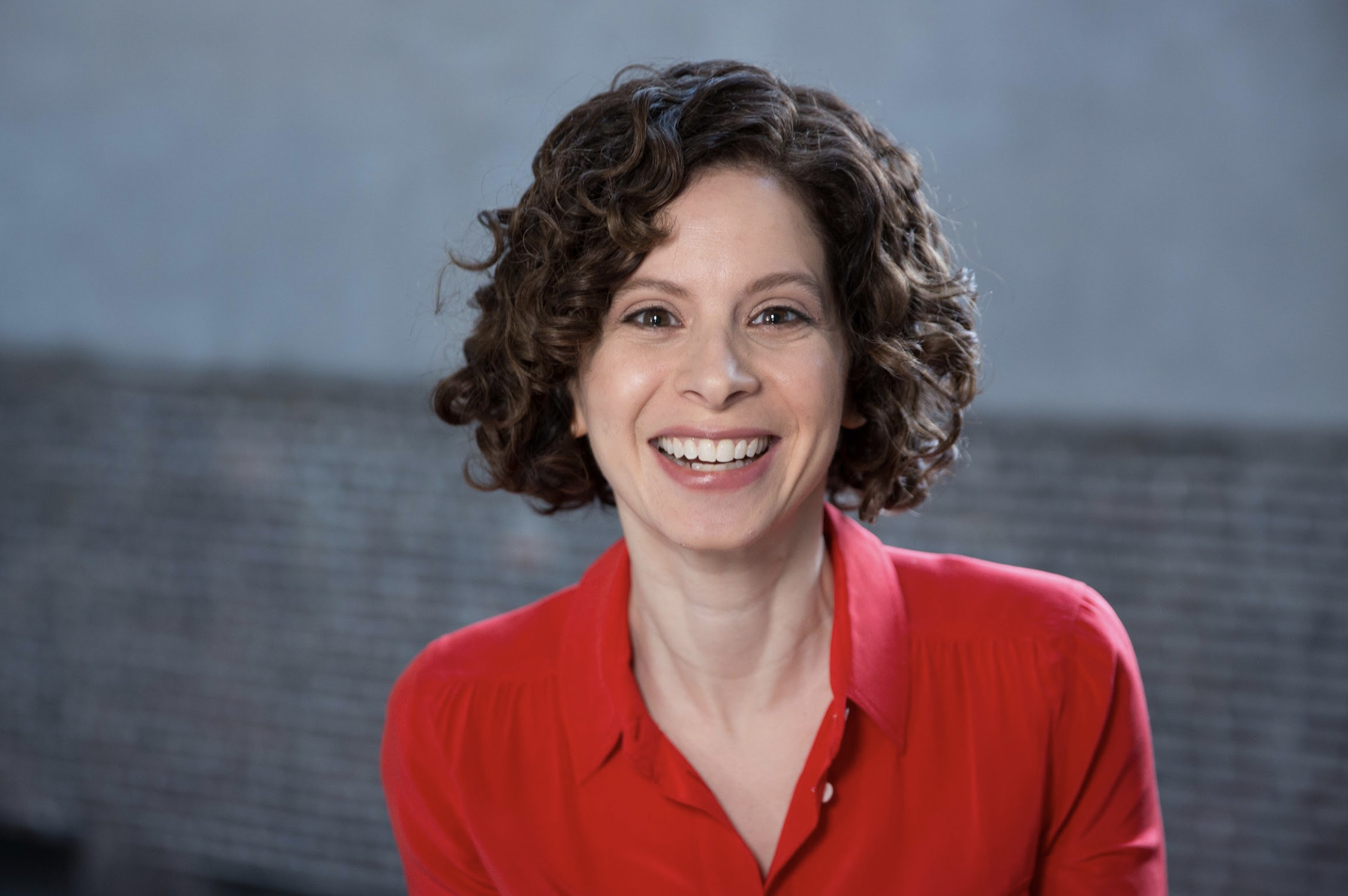Resilience, creativity, and an unapologetic love for storytelling—these are the driving forces behind Lauren Milberger, a writer, playwright, and cultural commentator whose work spans comedy, media analysis, and deeply personal explorations of health and legacy. Diagnosed with Crohn’s disease, she has transformed her experiences into powerful narratives that capture the nuances of grief, impact, and the small yet meaningful moments that shape our lives.
In this interview, she shares how her health journey has influenced her creative process, why she takes bigger risks in her art, and how a once-unthinkable script idea led to a semi-finalist placement in The Writer’s Lab. We also dive into her upcoming contribution to The Magnificent, Magical, Marvelous Mrs. Maisel: The Authorized Companion to the Making of the Iconic Series, where she examines the real and fictional legacy of Lenny Bruce. Plus, she discusses her podcast on Murphy Brown, the CNN documentary TV on the Edge, and the undeniable power of television in shaping public perception.
Through it all, she offers a candid look at balancing creativity with chronic illness, the importance of self-advocacy, and why even the smallest impacts in life can mean everything.
“First, I feel I should explain Crohn’s to anyone unaware. It’s an autoimmune disease where the immune system attacks the digestive tract. For me, it was localized in my colon. My illness was discovered after two years of intense pain, leading to the removal of my gallbladder in 2014. Most likely, I started symptoms in 2010 without knowing it. I only resumed my pain-free life in 2020 and went into remission in 2024.
People you may have heard of who are open about having Corhns: Tyler James Williams (Aboott Elementary), writer Samatha Irby, and comedian Pete Davison (Saturday Night Live) “
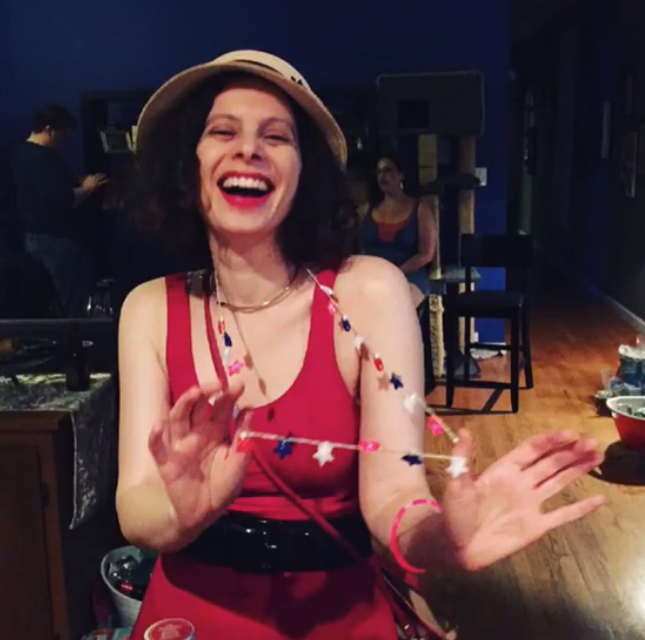
- Can you describe the moment when you realized that your health had significantly changed due to Crohn’s disease? What were your initial thoughts and feelings?
This is a really interesting and multi-leveled question in a way that I bet will surprise you—because it surprised me. The human body and brain are built for more adaptability and denial, even when confronted with immense pain—more than we can know until we’re forced to face it. My doctor at the time’s only advice, over and over, was to change my diet, even though I had done so several times. He eventually told me it was all in my head, and I began to believe him. At the time, I had never been seriously ill, broken a bone, or been in the hospital since birth. I was so naive about the medical system that I’m embarrassed to say I didn’t even know to ask for a blood test—something my doctor should have done without me asking. It never occurred to me to get a second opinion (please, always get a second opinion). The gaslighting of women in the healthcare system, unfortunately, is far more common than just my experience—especially for women of color. So, in short, this is not an easy answer.
Even when I got to the point where I couldn’t eat anything without pain, I kept telling myself it was something I would work through. I think growing up neurodiverse (I have dyslexia, dyscalculia, and dysgraphia), you get used to failing. You get used to falling flat on your face, dusting yourself off, and just keeping going.
My chiropractor has a sign in his office that says, after a certain point, you begin to feel that pain is normal—but pain isn’t normal. The more days you live with something new, the more it becomes your “new normal.” I think this happens with all kinds of pain—emotional and physical—and recognizing that can be a major breakthrough in the journey to a pain-free life. Pinpointing the exact moment when I knew my life had changed is hard, especially since my body wasn’t absorbing nutrients properly and my brain wasn’t being fed—making that time in my life still hazy in terms of memory. I knew I was getting better when my once-excellent memory returned. The best example is how I started feeling like time was running fast—my body clock felt off. I’d be late or just on time instead of arriving fifteen minutes early, which had never been a problem for me. When I started to recover, I realized time wasn’t running fast—I had been running slow.
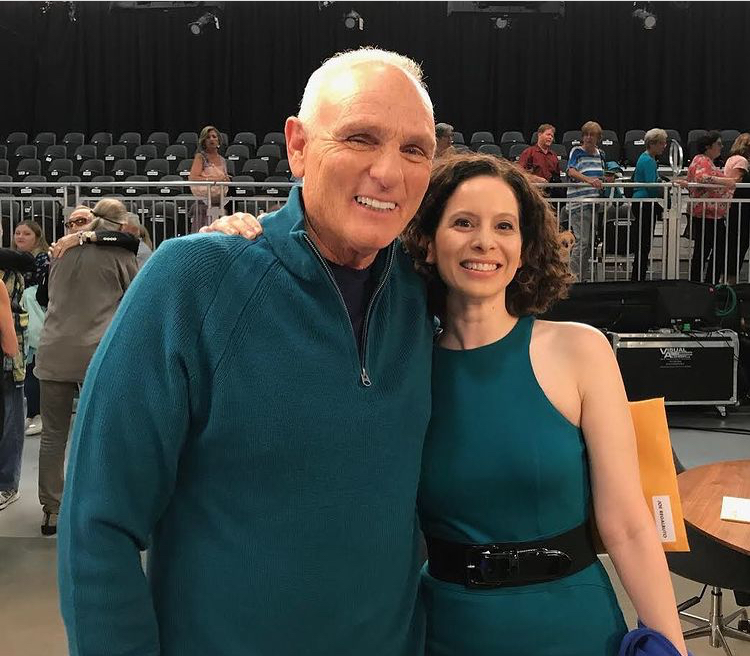
The biggest moment where I could no longer deny my life had changed—and I had to focus 100% on my health—came about two years into my diagnosis. I was on my third medication and still couldn’t eat solid foods because it wasn’t working. (I had to stay on it for almost a year to prove that it wasn’t.) It became clear I had to walk away from acting and writing until I was healthy enough to return. It was heartbreaking. However, that’s when I started podcasting, which led to some amazing successes, relationships, and special connections. But walking away from something you’ve invested time, money, and passion into—something tied to your adult identity—is scary, even without the health issues. You can walk away from a bad partner, friendship, or situation—you cannot walk away from your own health.
- How did the diagnosis and treatment of Crohn’s disease impact your personal and professional life?
As I mentioned, it completely upended everything. It’s especially hard when your job or field of interest is intertwined with your friend group. But it also teaches you who your real friends are. Humans are visual, and having had invisible disabilities my whole life, it wasn’t unfamiliar for me to deal with people who couldn’t conceptualize that I was ill because they couldn’t see it—especially in a society that equates thinness with health, which, of course, is not true. In fact, for me, the opposite was true.
I would lose touch with friends who, when I reached out or saw them later, would say things like, “Oh, is that still going on?” or “I wish I couldn’t eat.” When you’re chronically ill, you often have to decline social events due to your health—sometimes canceling at the last minute. It’s a balancing act. Eventually, some friends stop inviting you or just get used to not including you, especially when most social activities revolve around food and drink. The people who stayed after my diagnosis are now the friends I know I can truly count on. For some, the situation even brought us closer. It taught me how to ask for help—and not be ashamed to receive it.
Dating was also difficult for many of the same reasons. One of the last dates I went on before starting my journey toward better health involved someone I had been upfront with. During dinner, he taunted me to eat a food I had never eaten before—even pre-Crohn’s—meaning I had no idea how my body would react. “So what if you throw up? You throw up,” he said. I had to explain—no, I wouldn’t throw up. I could be in immense pain and have to leave the date.
The best way to describe Crohn’s and gallbladder pain is like the scene in Alien (1979) when the alien bursts out of the guy’s stomach—that’s what it feels like at its worst.
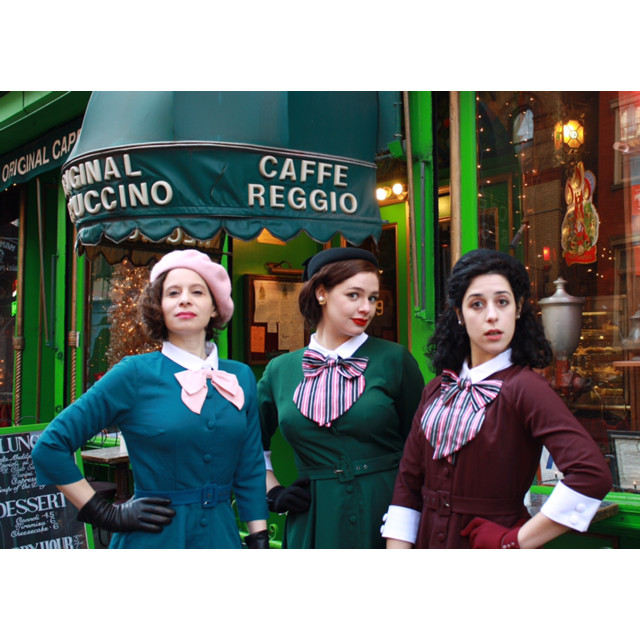
- What was the most challenging aspect of rebuilding your health and career after your diagnosis?
Rebuilding everything from scratch. At first, the main focus was my health. I’m lucky I’ve been able to rebuild it. I know not everyone with a chronic illness is that fortunate. That doesn’t mean I don’t still have to be careful, but not being tethered to a home or limited to a diet that restricts eating outside, and now being on a medication that finally works, has given me the freedom to return to my former life and start again.
Because of that, I’d say the most challenging aspect has been patience. I thought I had it, but I hadn’t yet learned how much a health issue can truly test your patience once you become a patient yourself. It’s like being handcuffed to an immovable object. So many people take for granted the simple act of being able to eat, to focus, or to read for pleasure. My health not only halted my body—it affected my brain, exacerbating my neurodiverse symptoms and causing extreme fatigue. It became difficult even to enjoy an audiobook or a TV show, because I couldn’t absorb them the way I used to.
Returning to any industry after a break is daunting, especially one like performing arts and writing, which relies heavily on momentum and youth. Doing it during a pandemic and after the strike made it even harder. But it taught me to accept where I am right now and keep going. There’s nothing I can do about the past—only the present. That doesn’t mean it’s easy. When I get frustrated, I have to remind myself: this is just where I am, and the only way forward is to keep moving.
I was bullied a lot growing up, and during those times I focused only on the future. Later, I spent years dealing—or not dealing—with trauma, which made me dwell on the past. After my Crohn’s diagnosis, I finally learned to live in the present and focus on what I can do each day to move forward. That has truly been the greatest gift. Illness sucks. I’m not a fan of toxic positivity or “inspiration porn.” You don’t have to find meaning in everything. It’s okay to say, “This is horrible. This is unfair.” But once you say that, you still have to keep going. Don’t let anyone tell you that you have to be perfect. You don’t.
As Carrie Fisher once said, “You know the bad thing about being a survivor? You keep having to get into difficult situations in order to show off your gift.”
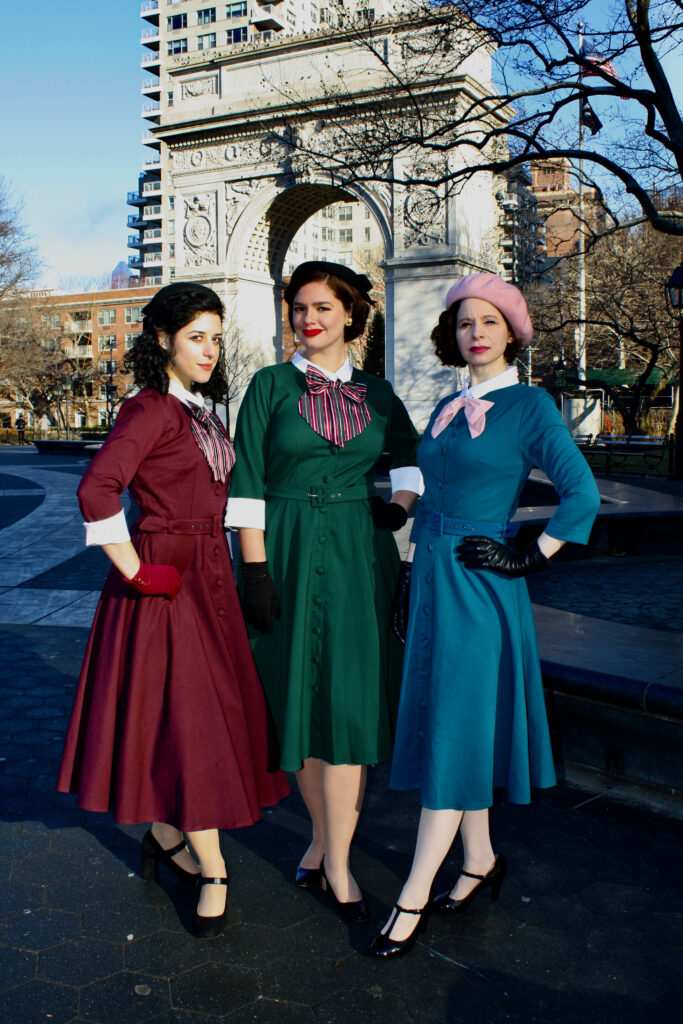
- How did you find the strength to start over and rebuild your life after such a major health setback?
Growing up neurodiverse, I’ve always known life isn’t perfect. There are always obstacles, and I learned to face them early. You just keep putting one foot in front of the other.
Honestly, though, I think all humans—once they pass through the stages of grief—eventually deal with the situation at hand. I had no choice but to rebuild my life, and what’s going to happen is going to happen. I never say, “What else could go wrong?” because something worse can always occur.
There is no other choice but to gather the strength to rebuild. My art is the foundation of what I have left. It’s what gives me joy every day, and I hope to use it to build a new life from the ground up. And maybe, just maybe, that life will be stronger than it was before.
There’s no shame in asking for help—and please, always offer it. I make it a point to check in with friends who may be going through something or facing a health crisis. Just letting someone know you’re thinking of them, that they’re not alone, can make a world of difference. Because I know what it’s like to feel forgotten, and I never want anyone else to feel that way. We don’t talk about that enough.
We need to stop sweeping chronic illness and disability under the rug. Let’s pull the rug back and show the truth.
- Can you share any specific strategies or practices that helped you cope with the physical and emotional challenges of Crohn’s disease?
The best thing you can do is respect your body. If it’s telling you to stop—stop. If it’s telling you to rest—rest. Give yourself the grace to mourn the life you once had. There is nothing wrong with doing that.
Find out who your real friends are and keep them close. Watch your favorite shows. Read a good book. Let yourself have fun. Joy in the little things matters.
- How did your perspective on life and health change as a result of your experience with Crohn’s disease?
I used to struggle with anxiety. If something went wrong, it felt like the end of the world. I would obsess over it for days. I think this is common for many young, neurodiverse people—especially those who have internalized trauma from school experiences. People would say, “Worrying won’t help,” but I’d still worry.
Right before I was diagnosed, I stepped on my laptop and broke it—something I couldn’t afford to replace at the time. And suddenly, I had a moment of clarity. There was nothing I could do to change it, and worrying was only making the present worse. That moment planted a seed. My illness watered it.
Living in the moment became a practice. No amount of stress, anger, or frustration was going to change the future—it would only ruin my present. So I learned to enjoy what I could and to take things one step at a time.
Also—food! I didn’t think I took food for granted, but I did. Now, if I want to eat a bagel, I’m going to eat it. I’ll treat myself after a good day, because I may not be able to tomorrow.
Another big shift: I’ve let go of needing to be right. Not that it isn’t nice, haha—but fighting to prove a point isn’t worth it. I almost died. I don’t care what someone thinks of me anymore. Life is too short. I’ve already lost enough time.
The ability to walk away is a wonderful skill. It’s hard—but so is being human.
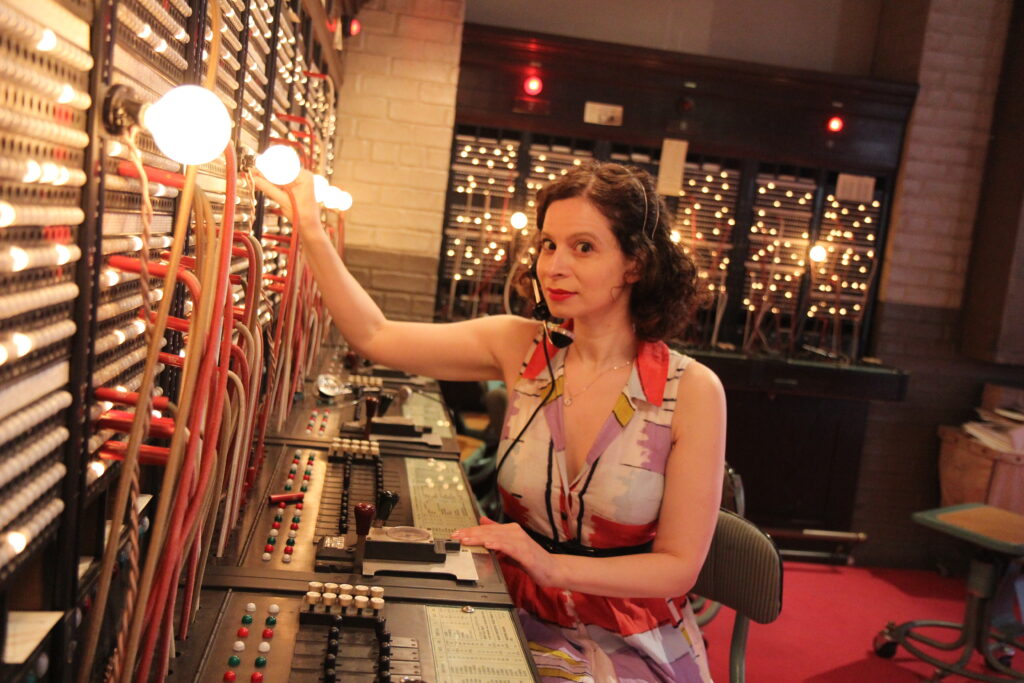
- What role did support from family, friends, or professionals play in your recovery and journey to rewrite your story?
Friends and family meant everything. They were the support system that helped carry me through it all. As I mentioned earlier, chronic illness can reveal who your real friends are. That shift in your social circle can be painful—even if it’s ultimately for the best.
And I’m not trying to shame anyone. One friend once said to me, “Oh, is that still going on?” That moment wasn’t about her being cruel—it reflected how little society teaches us about invisible illness. I can’t count how many people, upon learning I’m dyslexic, have asked, “How can you read?” As if John Irving, Whoopi Goldberg, and countless other writers and performers haven’t been dyslexic.
So here’s what I’ll say: check in on your friends. Just a quick text asking how someone is doing can make all the difference. It reminds them they’re not alone, that they matter, and that they’re remembered.
- Can you talk about a moment of breakthrough or a turning point in your journey to reclaim your health and career?
Discovering podcasting was a turning point. It was something I could do on my schedule and often from home. It allowed me to keep my creative spirit alive. I’ve had several podcasts, including a dramatization of my play about George Burns and Gracie Allen (The Raconteurs), but The Murphy Brown Podcast has been the most personal. That show was a cultural touchstone of my childhood and where I first formed some of the dreams I later had to pause due to illness. Revisiting it while recovering was incredibly surreal.
Through the podcast, I connected with others who had also watched the series when they were too young and with creatives behind the show who had once inspired my twelve-year-old self. I even went back to my childhood scrapbooks—something viewers will see in CNN’s TV On The Edge.
Another breakthrough was the welcome I received from casting directors and industry professionals when I returned to acting and writing. You assume they’ll forget you after so long, but many didn’t—and their support meant the world to me.
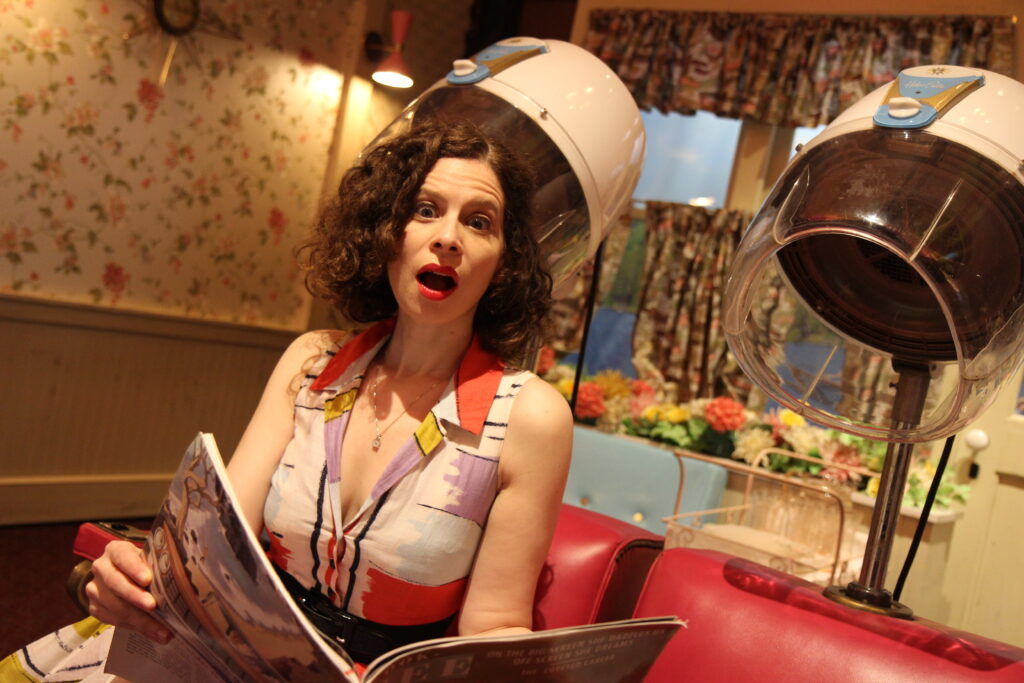
- How did you manage to stay motivated and focused during the toughest times of your illness and recovery?
Honestly, you just keep going. You take it hour by hour, day by day, and focus on what’s directly in front of you. When your body and mind are impacted by illness, even the simplest task becomes a mountain. You can’t will it away. You can’t hustle through it. If you’re a solution-oriented person like me, that can be a hard lesson.
So much of it comes down to grace—accepting that your steps won’t look like everyone else’s, or even like your former self’s.
For me, art was the anchor. My projects, especially writing, kept me going. Unlike acting, which requires others, writing is something you can do alone. When I became well enough to process and write again, I threw myself into it. Even if no one else ever reads it, the joy of returning to my stories gave me a reason to keep moving.
Since 2020, I’ve also run my own website design business focused on artists and creatives (though not exclusively). It’s another way I’ve found purpose—and a way to give back.
Crohn’s is something I’ll always have. I’ll always need to care for my health to avoid relapse. And even if I do everything right, a relapse is still possible. That’s another thing illness taught me: you can’t control everything. Let go of needing to be perfect.
Life is short—not just in terms of years, but in how we experience our days. Don’t take any of them for granted.
- In what ways has your experience with Crohn’s disease influenced your current projects and creative work?
It’s had a huge impact. Many of my current projects explore themes of grief, loss, legacy, and the quiet power of small acts. As a writer, the experience brought more truth and emotional depth into my work.
I used to focus on how I could make a big impact. Now I value the smaller ones—because sometimes they’re more meaningful. The big gestures might be forgotten in a few generations, but making a difference in even one person’s life? That lasts.
Crohn’s also gave me the courage to take bigger creative risks. I almost died—so what’s the worst that happens if I send an email or write something unusual? For example, I wrote a script I thought was completely unproducible—and it ended up making me a semi-finalist in The Writer’s Lab.
It reminded me: why not try?
- Can you tell us more about your upcoming essay book on Mrs. Maisel and Lenny Bruce? What inspired you to write about this series?
Yes! I contributed an essay about the real-life and fictional Lenny Bruce in relation to his portrayal in The Marvelous Mrs. Maisel for the upcoming book The Magnificent, Magical, Marvelous Mrs. Maisel: The Authorized Companion to the Making of the Iconic Series, which will be released by Abrams Books on October 15th.
As a pop culture writer focused on comedy, I’ve always been fascinated by Lenny Bruce’s influence on modern stand-up. But it was Luke Kirby’s Emmy-winning portrayal and the way the show depicted Bruce—especially his earlier years—that really drew me in. Amy Sherman-Palladino and the writing team managed to explore Bruce’s complexity without reducing him to a martyr. That nuance made me want to dig deeper.
I had already written about Mrs. Maisel for other outlets since the pilot episode. What struck me most, though, was how personally connected I felt to the show. I grew up immersed in Jewish comedy through my family—laughing along with the works of Carl Reiner, Mel Brooks, and Neil Simon. But Maisel made me realize that while I had grown up with those stories, they weren’t always mine. Women like Lucille Kallen, the only female writer in that comedy room, are often forgotten.
I’m currently writing a play about this very topic. And when I was asked to write about Bruce and censorship for the Maisel companion book, it felt like the perfect full-circle moment.
Fun fact: I was also a Mrs. Maisel tour guide in NYC for a while! Riding around in a tour bus dressed in 1950s fashion was such a blast—and it helped cement my love for the show even more.
- How has your podcast on Murphy Brown and the CNN documentary on the 1992 election influenced your perspective on media and storytelling?
It reinforced everything I already believed—and helped me go deeper.
Our podcast doesn’t just recap episodes; we dive into the show’s themes and how media shaped public opinion in the late ’80s and early ’90s. We highlight the blurring of lines between news and entertainment, and how that continues to impact journalism today. We also share behind-the-scenes stories—like those connected to the iconic music used in the show’s openings.
I was too young to watch Murphy Brown when it originally aired, but it had a big influence on me once I did. It made me more politically aware, and more conscious of how powerful storytelling can be.
TV is a tool. People may not respond to political speeches, but they’ll connect with characters they welcome into their homes every week. Look at the effect of Will & Grace—its popularity helped shift public perception and ultimately policy around marriage equality.
That’s why I’m so excited for people to watch CNN’s TV on the Edge. It shows just how much TV has shaped our world. And I hope it gets people curious about Murphy Brown again—a show that’s not streaming due to music rights. Hopefully, this sparks enough interest to bring it back.
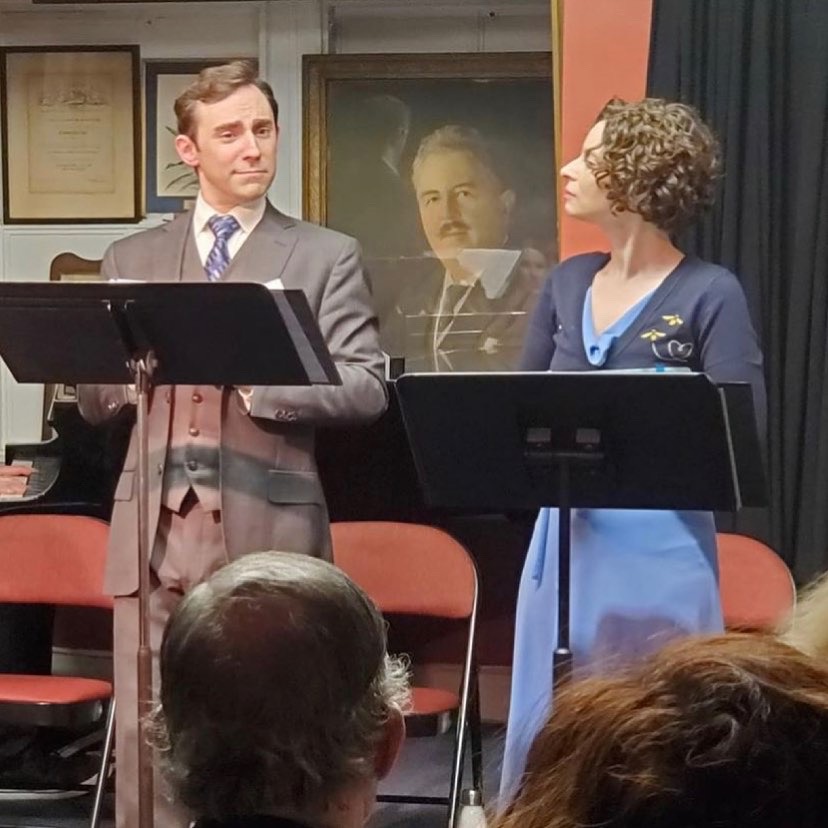
- How do you balance your creative projects with the ongoing management of your health?
I’m fortunate to be in a place where my health is relatively stable right now, thanks to my current remission. But I have to stay vigilant: taking my medication, eating in a way that supports my body, minimizing stress, and getting enough rest. If I don’t do those things, I won’t be able to show up for my work.
It’s a daily practice of checking in with myself. I structure my creative work around what my body needs—because nothing matters more than preserving my health. When I take care of myself, everything else becomes more possible.
- What message or piece of advice do you hope to share with other women who might be going through their own challenging journeys?
Don’t let anyone else’s opinions about you, your body, or what you need define your choices. I know that’s easier said than done. People will offer advice—sometimes well-meaning, sometimes not—about your health, your energy, your path. But they don’t know your body. They don’t know your story. Even those with the same diagnosis don’t live in your skin.
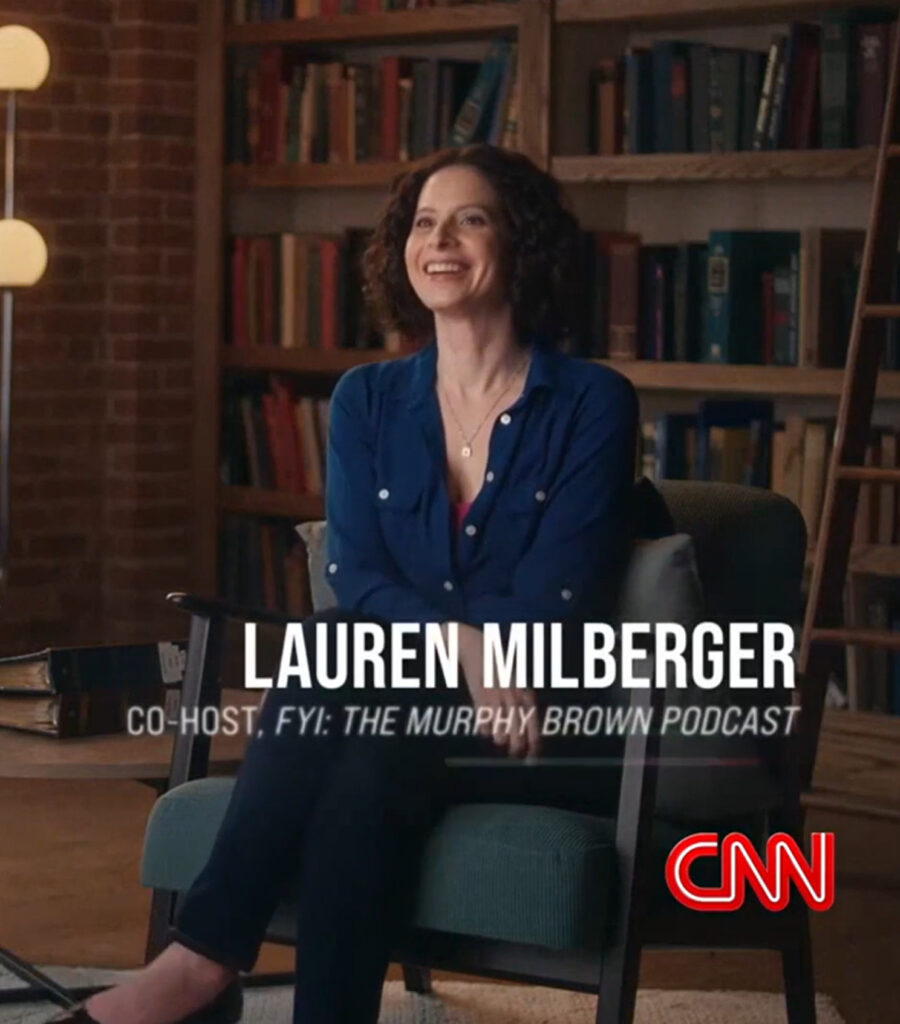
Listen to your body. Trust your gut. And always seek second (or third) opinions when something feels off.
I remember when I had a gallstone stuck in my duct and was scheduled for surgery the following Monday. It was Thursday. I told them calmly, over and over, “I need the surgery tomorrow.” That wasn’t like me at the time, but something in my body said: don’t wait. They rescheduled me.
The next morning, I woke up and something was very wrong. I wasn’t just in pain when I ate—it was constant, everywhere. My organs were starting to shut down. My body knew. I couldn’t have waited another day.
You only get one body. Advocate for it. Take care of it. And give yourself grace.
Also—celebrate the small milestones. Eating bread again was a huge deal for me! I missed bagels so much.
Focus on the present. One step at a time. Eventually, you’ll look back and see how far you’ve come.
